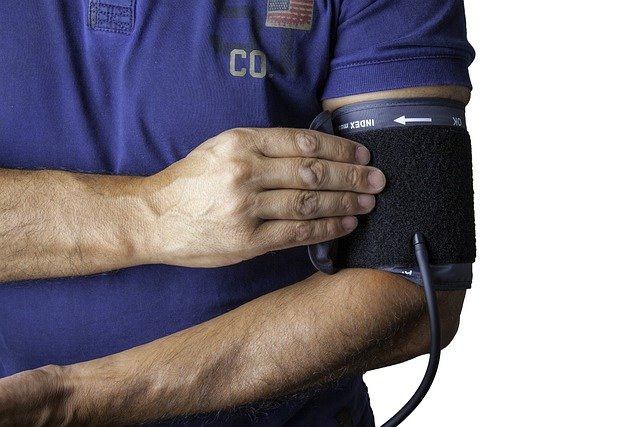Start a Medical Assistant Career in Vermont With Training
The medical assistant field in Vermont continues to offer stable and meaningful career paths for individuals ready to start work without prior experience. Many healthcare facilities are actively hiring for roles that support both administrative and clinical tasks across hospitals, clinics, and private practices. These positions often include training programs that teach essential skills such as patient communication, record management, and basic care procedures. Understanding how to qualify for these roles and what kind of preparation is required can help you make an informed decision about your next professional step.

What Skills Do Medical Assistant Training Programs Teach?
Medical assistant training programs cover a comprehensive range of both clinical and administrative skills essential for healthcare environments. Students learn patient care fundamentals including vital sign measurement, basic laboratory procedures, and assisting with medical examinations. Administrative training encompasses medical billing, insurance processing, appointment scheduling, and electronic health record management. Communication skills receive significant emphasis, as medical assistants serve as liaisons between patients, healthcare providers, and insurance companies. Programs also cover medical terminology, anatomy and physiology basics, and healthcare ethics to ensure graduates understand the professional standards expected in medical settings.
How Long Does Medical Assistant Training Typically Take?
Medical assistant training duration varies depending on the program format and institution. Certificate programs typically require 9 to 24 months to complete, with many designed to accommodate working students through evening or weekend schedules. Associate degree programs generally take two years of full-time study but provide more comprehensive education including general education requirements. Accelerated programs may be completed in as little as 6 to 9 months for full-time students. Some healthcare facilities offer on-the-job training programs that can last several weeks to a few months, allowing individuals to earn while learning essential skills in real healthcare environments.
Which Certification Options Are Available for Medical Assistants?
Several nationally recognized certification options exist for medical assistants seeking to enhance their credentials. The Certified Medical Assistant (CMA) credential through the American Association of Medical Assistants requires graduation from an accredited program and passing a comprehensive examination. The Registered Medical Assistant (RMA) certification through American Medical Technologists accepts candidates from accredited programs or those with relevant work experience. The National Certified Medical Assistant (NCMA) credential offers another pathway through the National Center for Competency Testing. Each certification requires ongoing continuing education to maintain active status and demonstrates professional commitment to employers.
What Career Opportunities Exist for Medical Assistants in Vermont?
Vermont’s healthcare sector offers diverse employment opportunities for trained medical assistants across various settings. Primary care practices, specialty clinics, urgent care centers, and hospital systems actively recruit qualified medical assistants. Rural healthcare facilities particularly value medical assistants who can handle both clinical and administrative responsibilities. Some medical assistants advance to specialized roles in areas like cardiology, pediatrics, or dermatology after gaining experience. Leadership opportunities may include training new staff, managing patient flow, or supervising administrative functions. The aging population in Vermont continues to drive demand for healthcare services, creating stable job prospects for medical assistant professionals.
Understanding Vermont’s Medical Assistant Employment Landscape
Vermont’s unique healthcare environment offers several advantages for medical assistant professionals. The state’s emphasis on community health centers and rural healthcare access creates opportunities for medical assistants to work in meaningful, patient-focused roles. Many Vermont healthcare facilities value employees who can adapt to various responsibilities, making medical assistants particularly valuable team members. The state’s commitment to healthcare quality and patient safety aligns with professional medical assistant training standards. Additionally, Vermont’s proximity to major metropolitan areas in neighboring states provides flexibility for career advancement while maintaining the benefits of working in a close-knit healthcare community.
Training Program Costs and Provider Comparison
Understanding the financial investment required for medical assistant training helps prospective students make informed decisions about their education path. Training costs vary significantly based on program type, duration, and institution.
| Program Type | Provider Example | Duration | Cost Estimation |
|---|---|---|---|
| Certificate Program | Community College of Vermont | 12-18 months | $3,000-$8,000 |
| Associate Degree | Vermont Technical College | 24 months | $12,000-$18,000 |
| Private Career School | Porter and Chester Institute | 9-15 months | $15,000-$25,000 |
| Online Program | Penn Foster Career School | 12-18 months | $4,000-$10,000 |
Prices, rates, or cost estimates mentioned in this article are based on the latest available information but may change over time. Independent research is advised before making financial decisions.
Medical assistant training represents an accessible pathway into healthcare careers, offering Vermont residents the opportunity to enter a stable, growing field without extensive educational prerequisites. The combination of hands-on clinical skills, administrative competencies, and patient interaction makes this profession both challenging and rewarding. With proper training and certification, medical assistants can build meaningful careers while contributing to their communities’ healthcare needs. Vermont’s supportive healthcare environment and commitment to quality patient care create an ideal setting for medical assistant professionals to thrive and advance in their chosen field.
This article is for informational purposes only and should not be considered medical advice. Please consult a qualified healthcare professional for personalized guidance and treatment.




